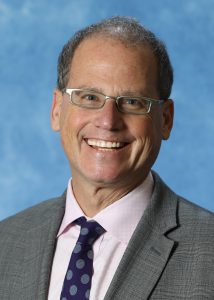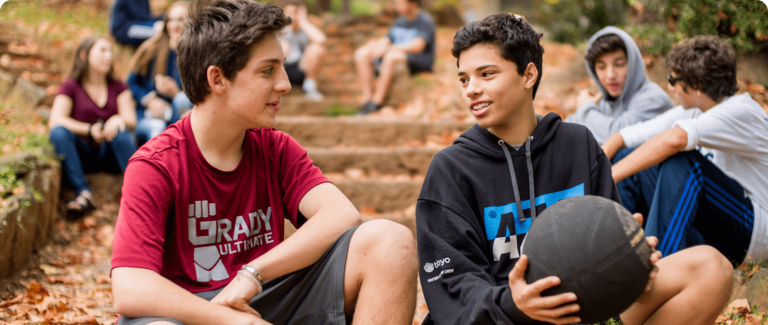
Growing up in Pittsburgh’s most Jewish neighborhood, Squirrel Hill, Israel always made my heart swell. When I sang Hatikvah, Israel’s national anthem, there was a catch in my throat at the words, “lihiyot am hofshi b’artzeinu…” to be a free people in our land. My pride was rooted in Israel’s inspiring story of nation-building, resilience, and creativity. And it still is.
So as Israel’s 70th birthday approaches, I have a radical thought. Maybe, just maybe, Atlanta needs Israel more than Israel needs us. Here’s what I mean.
I mean that we all need to put Israel on our destination travel list. If you haven’t been to Israel in 10 years or more, you really haven’t been to Israel. So much has changed. Federation offers incredible opportunities to see Israel with fresh eyes. See our mission list at www.jewishatlanta.org/missions and come to Israel with us. You will be powerfully moved and impressed by what you see and the people you meet.
I mean that all of us can be uplifted by Israel’s innovation mindset that refuses to say “no,” to big challenges. That mindset turned sea water into drinking water, invented drip irrigation, created the first USB flash drive, and the WAZE app. Let’s build more reciprocal relationships with Israeli innovators and change makers so we can collaborate on big ideas that make the world better.
I mean that we can all be inspired by the prosperous, successful and capable Israel I have now visited so many times since becoming CEO of Federation. It’s an Israel still grateful for our support, but less reliant on us than ever before, solving problems with its own resources and ingenuity. We are moving to a peer relationship, not a purely philanthropic one, and it feels good!
I mean that we must reach out and build stronger relationships with Atlanta’s Israeli community, estimated at 10,000 and still growing. Let’s find more ways for Israelis and Atlantans to interact and truly know each other. This year we welcomed two young Israelis, Or Shahan and Lior Bar, to our community as Shinshinim – service volunteers. In just 7 months they’ve interacted with 1,000 kids in our camps, preschools and day schools. They’ve had real impact. Next year we’re welcoming eight Shinshinim to Atlanta.
I mean that everyone can take a lesson in resilience from Israel. This tiny nation has mastered the ability to rebound from terrorism and live with the constant threat of attack, and now teaches the world how to do the same. The Israel Trauma Center, which our Community Leadership trip visited in February, has helped tsunami and earthquake victims, even the Las Vegas and Parkland shooting survivors.
I mean that there’s tremendous wisdom for all of us in the Torah texts and bible stories that every Israeli school child knows, even the secular ones. Torah is not just for “the Orthodox.” Let’s build our Jewish literacy. One pillar of our work on The Front Porch is that Torah can be a manual for living for every Jew, no matter what their level of observance or literacy.
I mean that we should all take pride in the progress our partnership cities Yokneam and Megiddo have made in assimilating Ethiopian refugees since the early 1990’s. Yes, Federation support played a part, but the bigger story is Yokneam’s attitude of acceptance and commitment to a better future for Ethiopians. We’re excited to share that story in a new film about the Ethiopian Aliyah in Yokneam and Megiddo that Federation will preview this summer.
I mean that we must make it a priority help young Jews have an authentic and unique relationship with Israel. Let’s create safe spaces where we can have dialogue about Israel respecting all points of view. Let’s do it through immersive exchange programs, through Birthright Israel offshoots like Honeymoon Israel and through internships for college students like Hillel’s Onward program.
I write all this as our Atlanta Jewish community gets ready to throw a big, bold and beautiful 70th birthday bash for Israel on Sunday, April 29 at Park Tavern in Piedmont Park from 10:30 am to 4 pm. There will be food, music, technology, art projects, exhibits and sports — something for everyone! More than 70 organizations have planned Israel@70. What a great opportunity to come together and celebrate the miracle, and the complexity, that is the modern State of Israel. Tickets are priced so everyone can come, including a flat $18 for family groups with kids. You can buy tickets online at https://jewishatlanta.org/israel70.
Don’t miss the party! I look forward to seeing you at Park Tavern on Sunday.
 The Atlanta Jewish Teen Initiative, known as
The Atlanta Jewish Teen Initiative, known as  Tatum Gordon, who attends Mill Springs Academy, said, “Touring MBS was my favorite part, and learning the mechanics of how the roof works. We had a scavenger hunt at the College Football Hall of Fame, searching for characteristics of a hero. You don’t need to have superpowers to show compassion or be a hero.” Josh Silverman, who attends St. Francis High School said, “It was good to learn about entrepreneurs that were very successful and that dealt with hardships and still became successful. The entrepreneurs gave back to their community by setting up businesses in Israel.”
Tatum Gordon, who attends Mill Springs Academy, said, “Touring MBS was my favorite part, and learning the mechanics of how the roof works. We had a scavenger hunt at the College Football Hall of Fame, searching for characteristics of a hero. You don’t need to have superpowers to show compassion or be a hero.” Josh Silverman, who attends St. Francis High School said, “It was good to learn about entrepreneurs that were very successful and that dealt with hardships and still became successful. The entrepreneurs gave back to their community by setting up businesses in Israel.” 




 Our teens are looking for on-ramps for conversations with adults in a safe
Our teens are looking for on-ramps for conversations with adults in a safe

